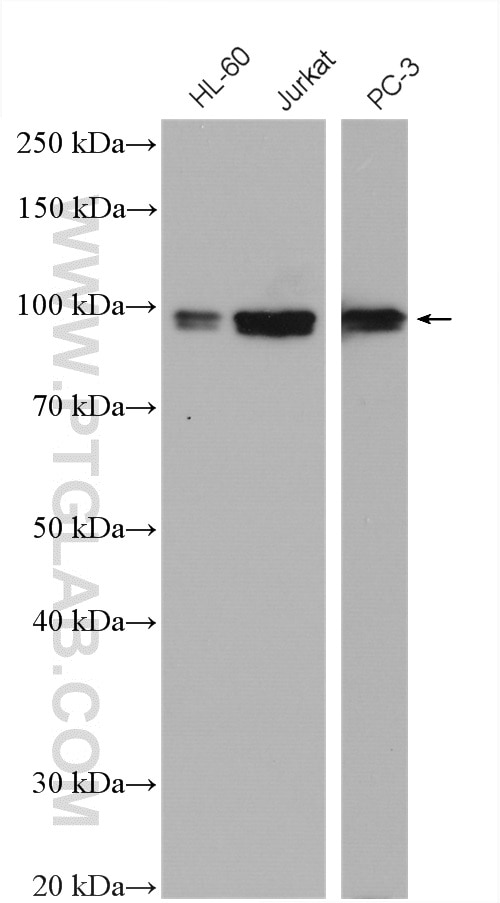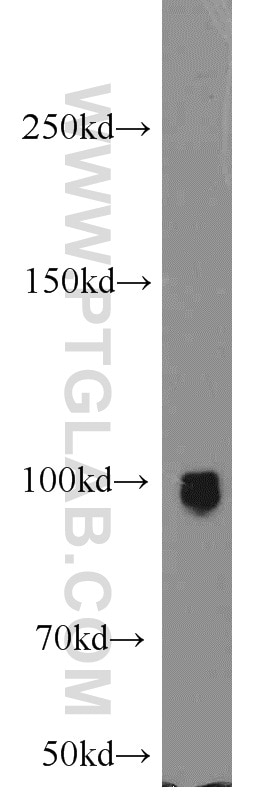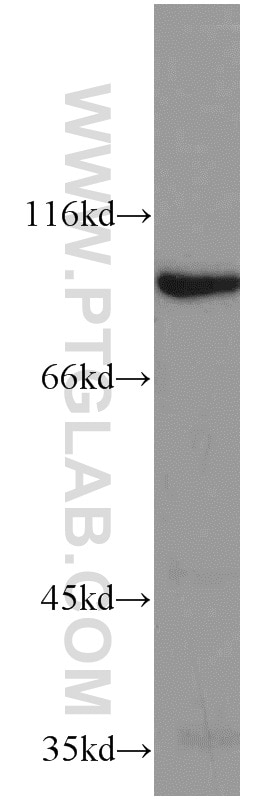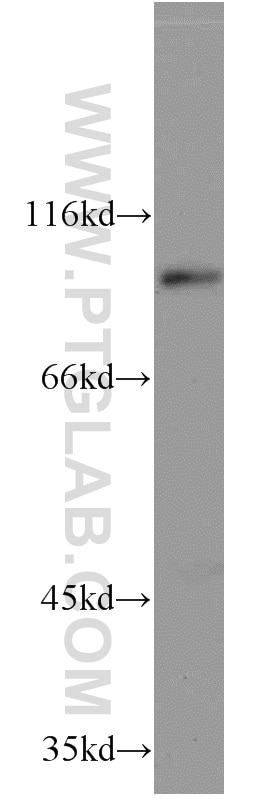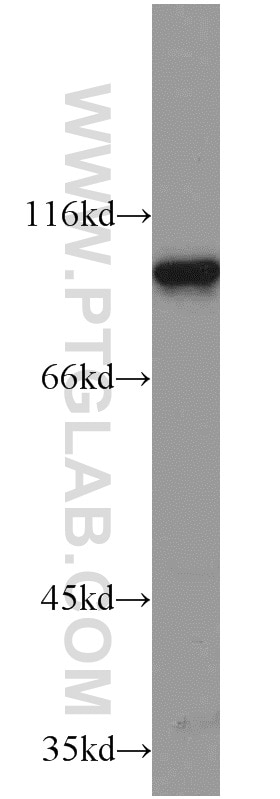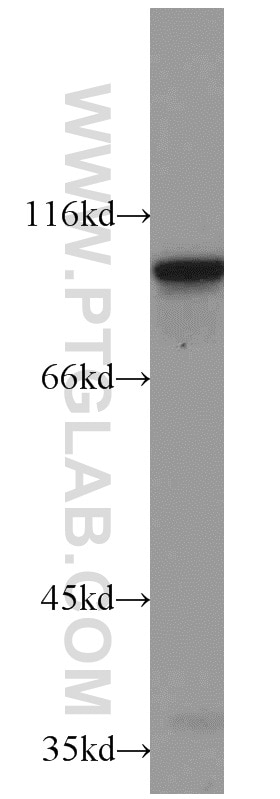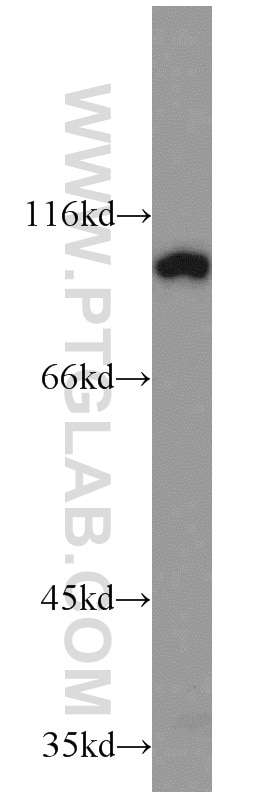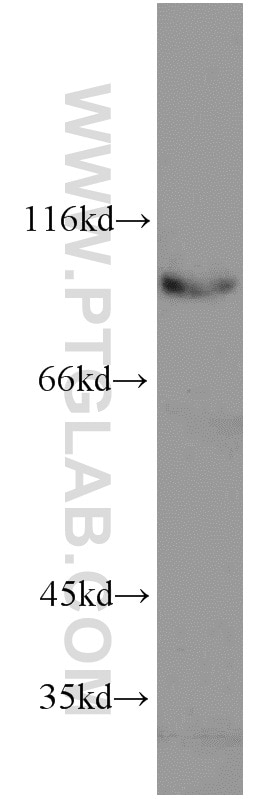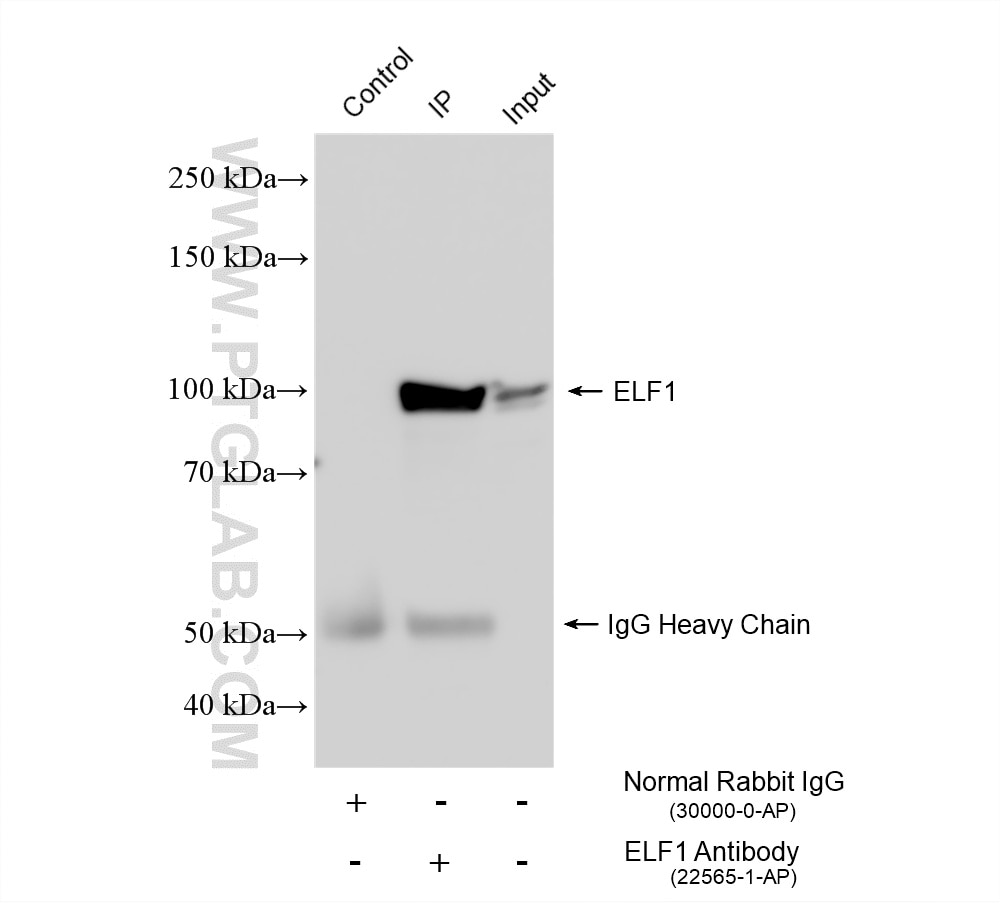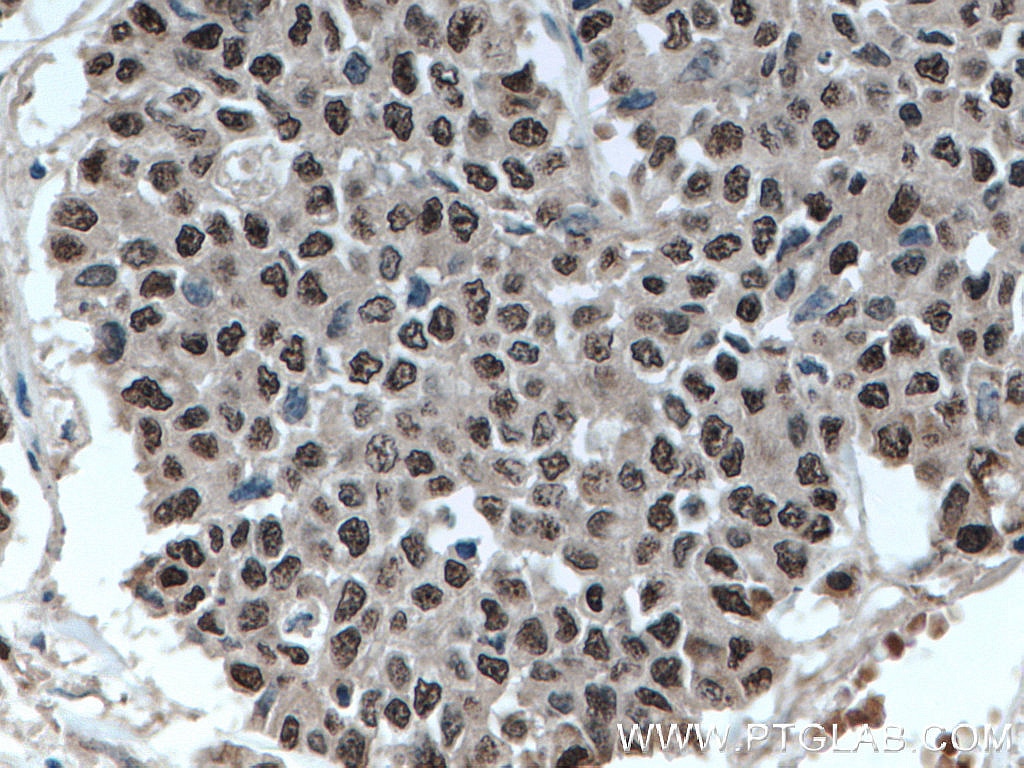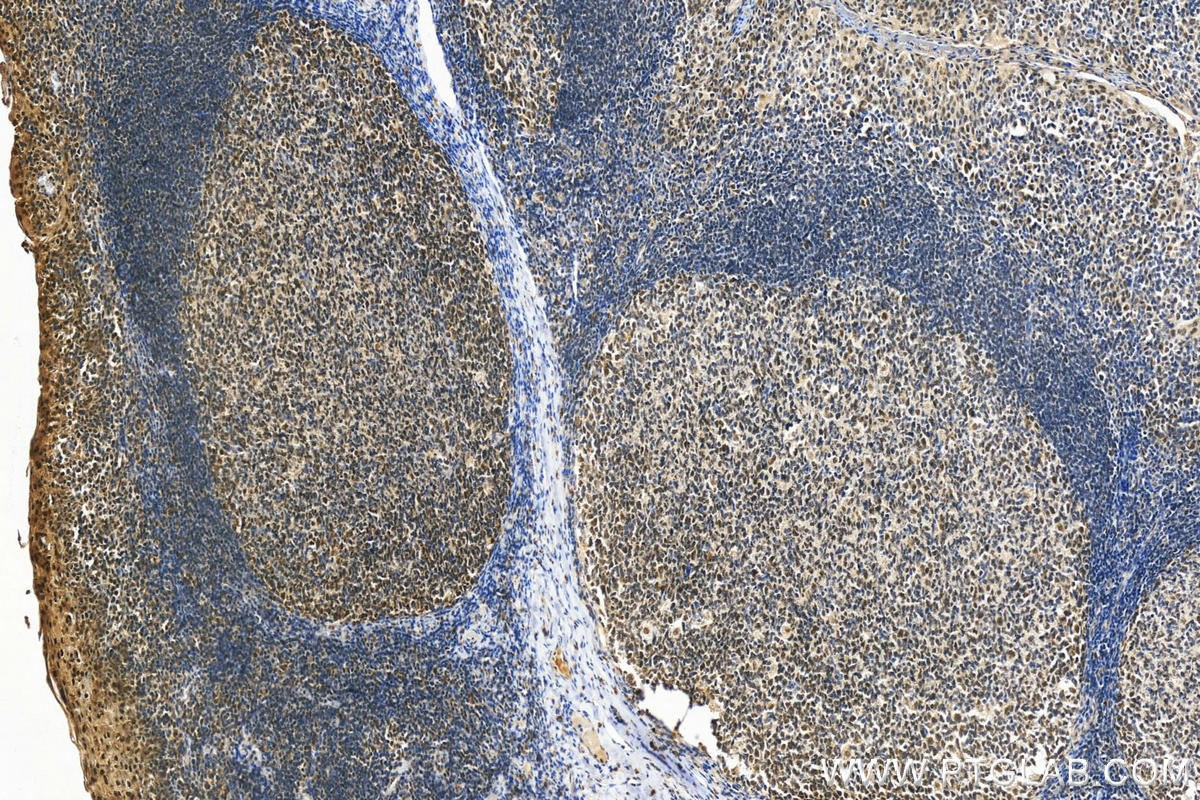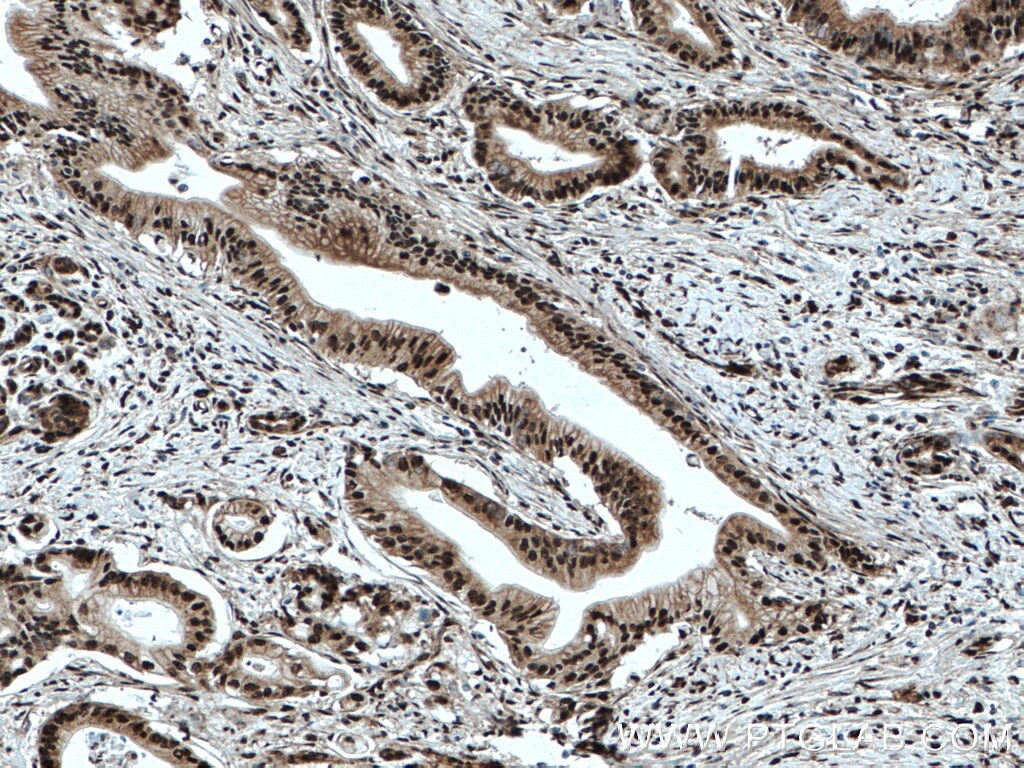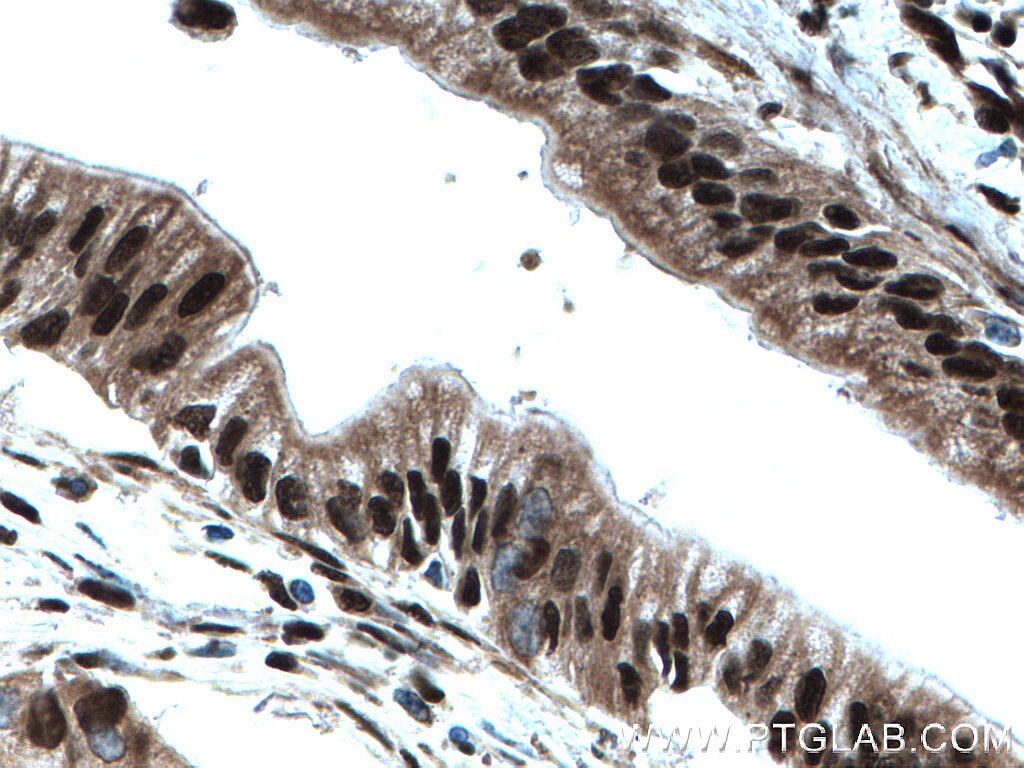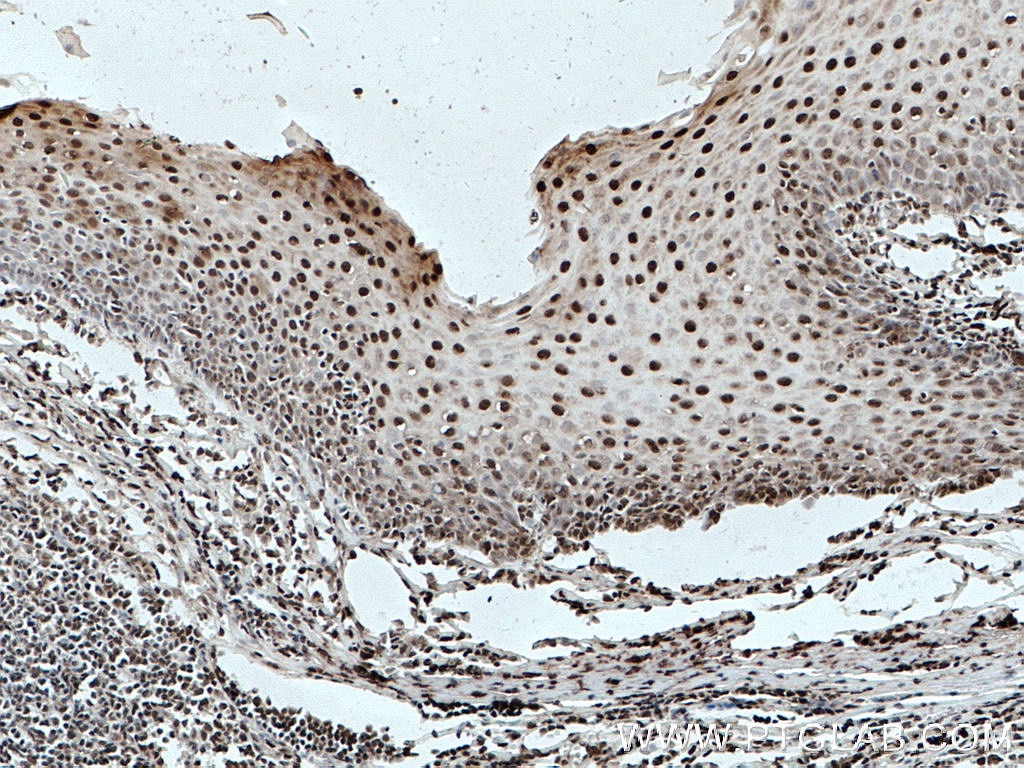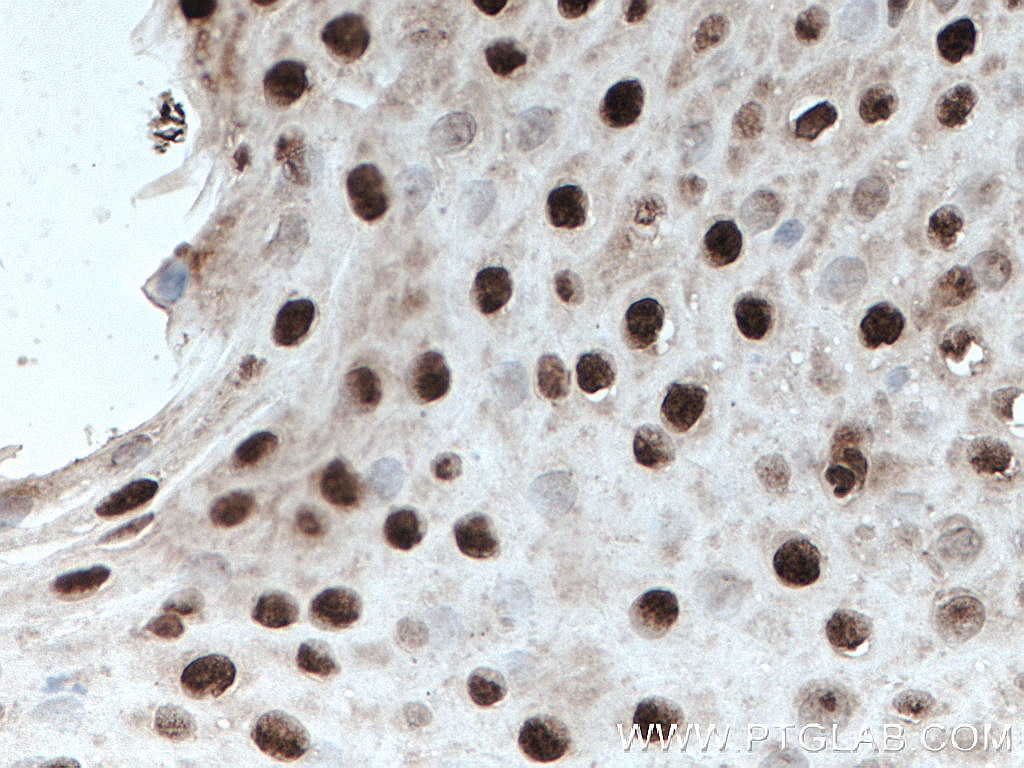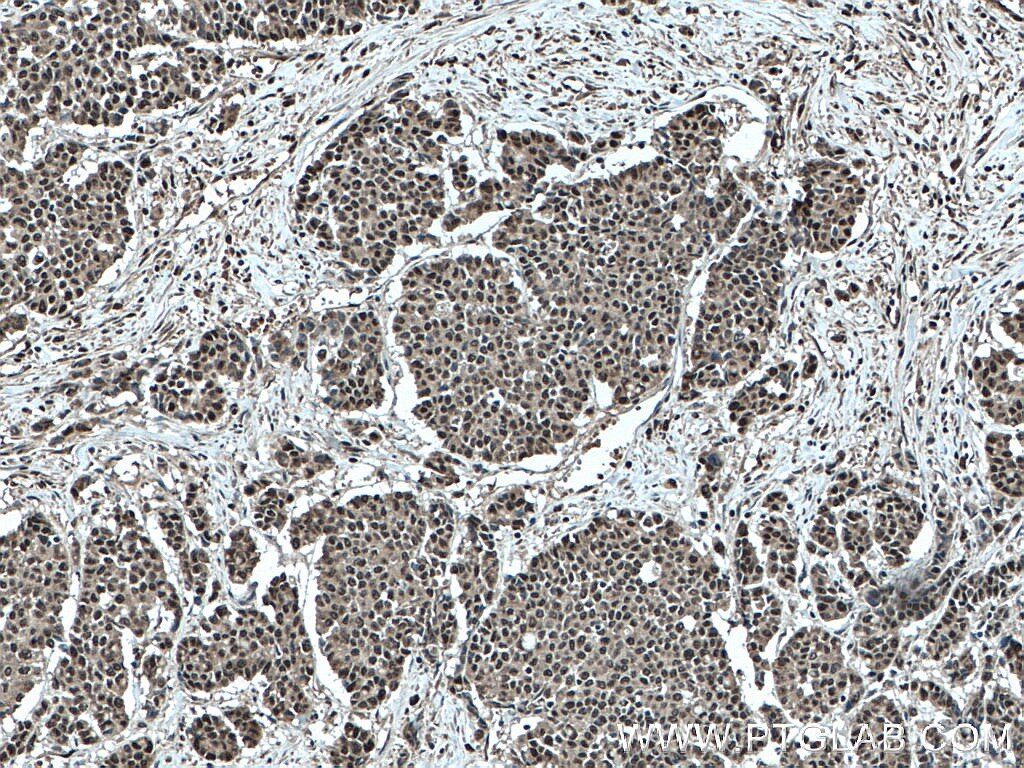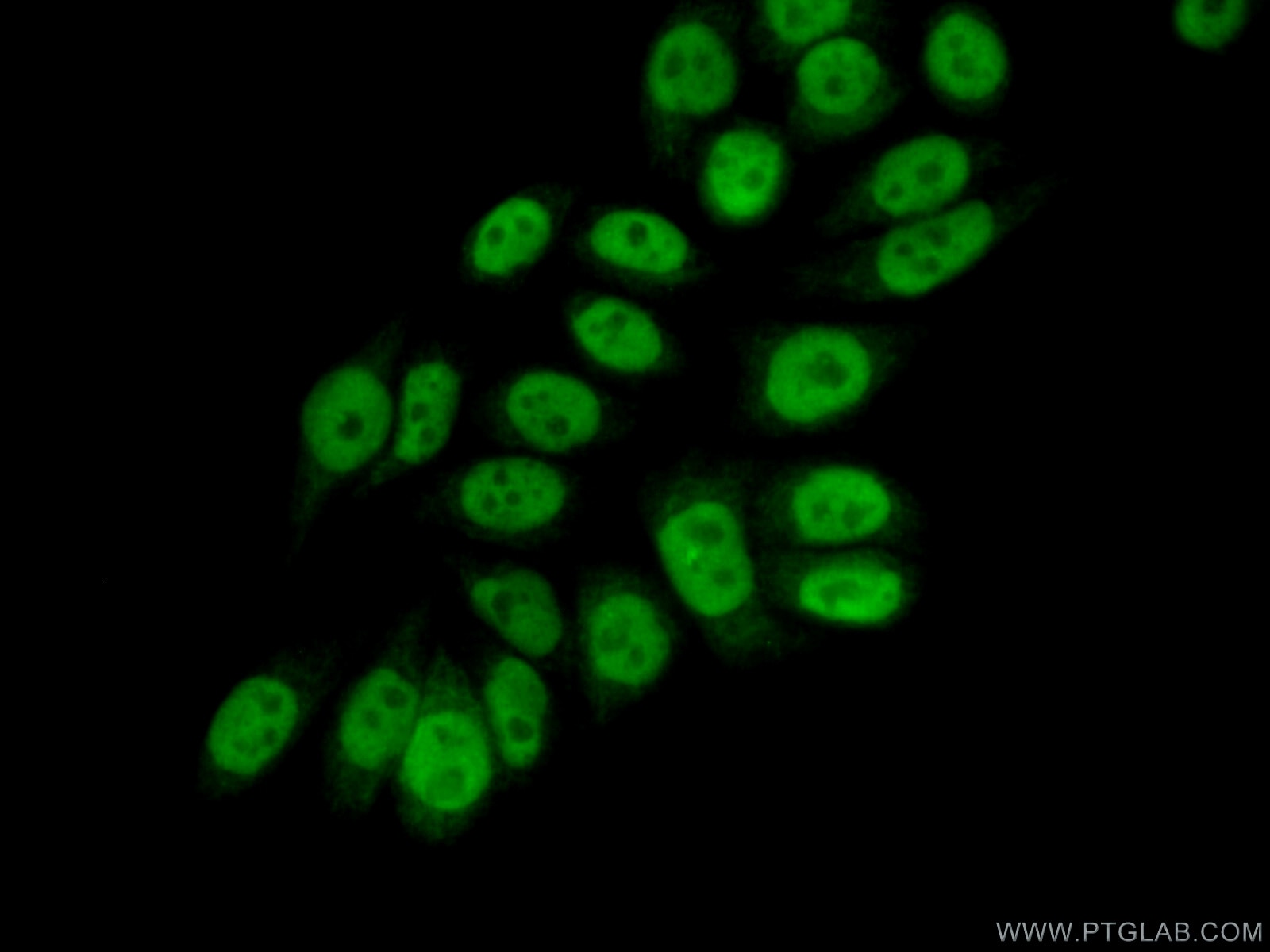Tested Applications
| Positive WB detected in | PC-3 cells, HeLa cells, A431 cells, Jurkat cells, HL-60 cells, mouse thymus tissue |
| Positive IP detected in | THP-1 cells |
| Positive IHC detected in | human colon cancer tissue, human pancreas cancer tissue, human tonsillitis tissue Note: suggested antigen retrieval with TE buffer pH 9.0; (*) Alternatively, antigen retrieval may be performed with citrate buffer pH 6.0 |
| Positive IF/ICC detected in | PC-3 cells |
Recommended dilution
| Application | Dilution |
|---|---|
| Western Blot (WB) | WB : 1:1000-1:8000 |
| Immunoprecipitation (IP) | IP : 0.5-4.0 ug for 1.0-3.0 mg of total protein lysate |
| Immunohistochemistry (IHC) | IHC : 1:100-1:1200 |
| Immunofluorescence (IF)/ICC | IF/ICC : 1:50-1:500 |
| It is recommended that this reagent should be titrated in each testing system to obtain optimal results. | |
| Sample-dependent, Check data in validation data gallery. | |
Published Applications
| KD/KO | See 1 publications below |
| WB | See 3 publications below |
| IHC | See 3 publications below |
| IF | See 1 publications below |
| ChIP | See 2 publications below |
Product Information
22565-1-AP targets ELF1 in WB, IHC, IF/ICC, IP, ChIP, ELISA, EMSA applications and shows reactivity with human, mouse samples.
| Tested Reactivity | human, mouse |
| Cited Reactivity | human, mouse |
| Host / Isotype | Rabbit / IgG |
| Class | Polyclonal |
| Type | Antibody |
| Immunogen |
CatNo: Ag14689 Product name: Recombinant human ELF1 protein Source: e coli.-derived, PET28a Tag: 6*His Domain: 320-618 aa of BC030507 Sequence: TSNRNQTSRSRVSSSPGVKGGATTVLKPGNSKAAKPKDPVEVAQPSEVLRTVQPTQSPYPTQLFRTVHVVQPVQAVPEGEAARTSTMQDETLNSSVQSIRTIQAPTQVPVVVSPRNQQLHTVTLQTVPLTTVIASTDPSAGTGSQKFILQAIPSSQPMTVLKENVMLQSQKAGSPPSIVLGPAQVQQVLTSNVQTICNGTVSVASSPSFSATAPVVTFSPRSSQLVAHPPGTVITSVIKTQETKTLTQEVEKKESEDHLKENTEKTEQQPQPYVMVVSSSNGFTSQVAMKQNELLEPNS Predict reactive species |
| Full Name | E74-like factor 1 (ets domain transcription factor) |
| Calculated Molecular Weight | 619 aa, 67 kDa |
| Observed Molecular Weight | 97 kDa |
| GenBank Accession Number | BC030507 |
| Gene Symbol | ELF1 |
| Gene ID (NCBI) | 1997 |
| RRID | AB_2879123 |
| Conjugate | Unconjugated |
| Form | Liquid |
| Purification Method | Antigen affinity purification |
| UNIPROT ID | P32519 |
| Storage Buffer | PBS with 0.02% sodium azide and 50% glycerol, pH 7.3. |
| Storage Conditions | Store at -20°C. Stable for one year after shipment. Aliquoting is unnecessary for -20oC storage. 20ul sizes contain 0.1% BSA. |
Background Information
ELF1, also named as ETS-related transcription factor Elf-1, is originally cloned from a human T-cell cDNA library by hybridization with a probe encoding the DNA binding domain (ETS domain) of the human Ets-1 cDNA. Based on its preferential expression in embryonic lymphoid organs (thymus and spleen), a wide variety of epithelial cells and fetal liver as well as in adult haematopoietic tissues, including thymus, spleen and bone marrow, Elf-1 emerged as a potential key regulator of haematopoietic gene expression. Consistent with this notion, Elf-1 has been shown to be a direct upstream regulator of genes important for haematopoiesis such as Scl, Fli-1, Lyl-1, Runx1 and Lmo2 . Elf-1 has also been shown to be important for blood vessel development, a process that is closely linked to early haematopoiesis during embryonic development. Elf-1 has been reported to take part in the transcriptional control of major regulators of blood vessel development such as Tie1, Tie2, angiopoietin-2, the vascular endothelial growth factor receptor 1 (VEGFR1), the endothelial nitric-oxide synthase (eNOS) and endoglin . Functional activity of Ets proteins is modulated at multiple levels. It is known that ELF-1 appears in the cytoplasm as a 80 KDa protein that is O -glycosylated and phosphorylated in order to be translocated into the nucleus where it can be detected as a 98 KDa protein. After dephosphorylation, the protein is degraded through the proteasome pathway. The inactive form of Elf-1 is an 80-kDa protein that lacks DNA-binding activity and is confined to the cytoplasm of the cell. Phosphorylation and O-linked glycosylation increase the molecular weight of Elf-1 to 98 kDa, the active form; 98 kDa Elf-1 binds to the promoter of the gene that codes for CD3ζ inducing its transcription.
Protocols
| Product Specific Protocols | |
|---|---|
| IF protocol for ELF1 antibody 22565-1-AP | Download protocol |
| IHC protocol for ELF1 antibody 22565-1-AP | Download protocol |
| IP protocol for ELF1 antibody 22565-1-AP | Download protocol |
| WB protocol for ELF1 antibody 22565-1-AP | Download protocol |
| Standard Protocols | |
|---|---|
| Click here to view our Standard Protocols |
Publications
| Species | Application | Title |
|---|---|---|
J Autoimmun rs9459874 and rs1012656 in CCR6/FGFR1OP confer susceptibility to primary biliary cholangitis. | ||
Biochim Biophys Acta Mol Basis Dis ARL11 knockdown alleviates spinal cord injury by inhibiting neuroinflammation and M1 activation of microglia in mice | ||
Front Bioeng Biotechnol Let-7i-5p Regulation of Cell Morphology and Migration Through Distinct Signaling Pathways in Normal and Pathogenic Urethral Fibroblasts. | ||
J Exp Clin Cancer Res TNFAIP8 promotes AML chemoresistance by activating ERK signaling pathway through interaction with Rac1. | ||
Nat Genet Pharmacological restriction of genomic binding sites redirects PU.1 pioneer transcription factor activity |
Reviews
The reviews below have been submitted by verified Proteintech customers who received an incentive for providing their feedback.
FH Iru (Verified Customer) (06-18-2020) | There are other non-specific multiple bands as well.
|

